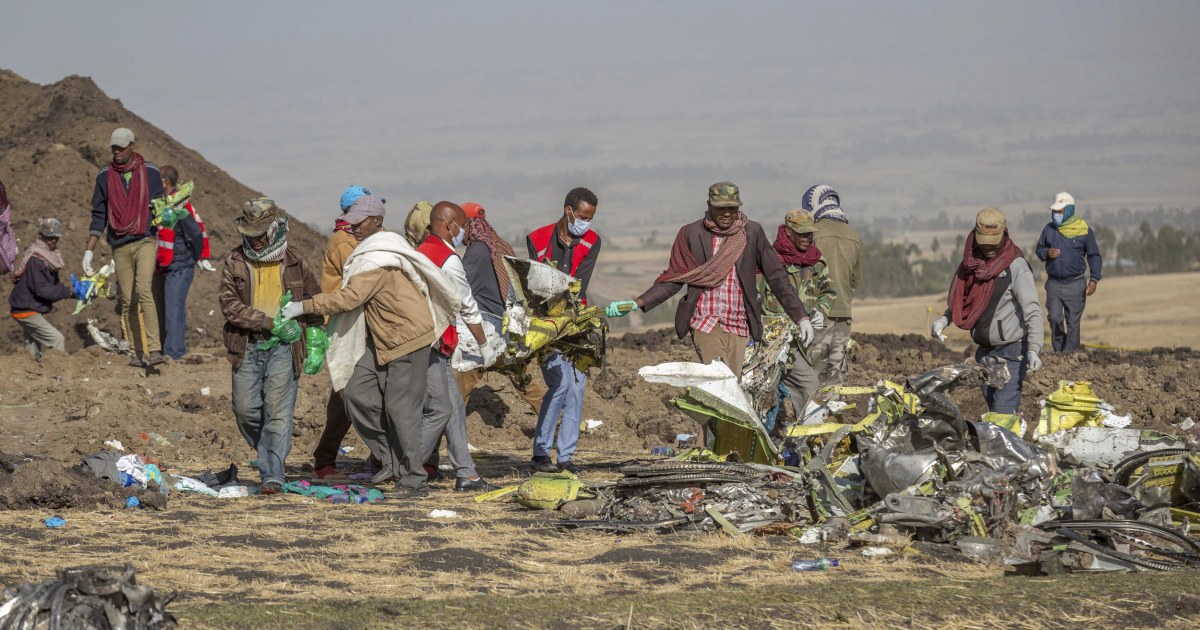 Science & Environment
Science & Environment
Five Science Fiction Movies to Stream Now
‘If You Were the Last’
After three years of buddy banter and watching the same movies over and over, astronauts Adam and Jane, marooned on a busted ship, accept the fact that they won’t get back to Earth and finally give in to their mutual attraction. Of course that’s when their navigation system starts working again, enabling them to return home — where their spouses are waiting. Uh-oh. Does it count as cheating if you thought you were doomed?
Anthony Mackie (recently seen in the “Twisted Metal” series) and Zoë Chao (“Party Down”) convincingly, playfully connect as both sparring partners and lovers, and pairing them in a romantic comedy of the sci-fi persuasion was a felicitous move. While the story is relatively straightforward, the director Kristian Mercado puts a fun twist on it: The ship is cartoonishly designed, with flat surfaces that often look drawn, while everything on Earth is filmed in a naturalistic manner. This suggest that the space sexcapades were not part of “real” life. But what if they led to feelings that are simultaneously grounded and lightheaded? Never mind where Adam and Jane are: You are likely to find yourself rooting for them, which is a good rom-com’s ultimate objective.
‘The Gravity’
Set in gritty, racially mixed housing projects, the banlieue movie has become a thriving subgenre of French cinema since “La Haine” in 1995. It has gone through multiple variations, taking the form of thrillers, coming-of-age tales, comedies and family dramas. Now comes “The Gravity,” in which teen gangs, drug dealers and people with dreams of escape confront one another against an ominous apocalyptic background. Most of the French-Burkinabé director Cédric Ido’s film takes place before a freak alignment of all eight planets in the solar system. Nobody knows exactly what will happen, but everybody is on edge. Daniel (Max Gomis) is about to move away with his girlfriend (Hafsia Herzi) and their daughter, but the pull of the neighborhood is strong — and no one is pulling stronger than his own brother, Joshua (Steve Tientcheu), a wheelchair-using tinkerer and dealer. What’s most striking about “The Gravity” is the precision with which Ido builds mood, using camera work and editing that are economical and precise. As Daniel faces off with his own flesh and blood as well as a quasi-mystical gang, the Ronins, the movie plays off the idea of gravitational pull, both literal and metaphorical, suggesting that people can be kept in place by implacable forces.
Kyle Patrick Alvarez’s movie is pretty much “The Goonies” but on the moon. Too bad “Moonies” has quite a different meaning because it would have been a great title. Set in 2257, the film takes place on a long-established lunar colony that’s basically a glorified dormitory for miners harvesting helium, a crucial component for intergalactic travel. The mining company’s treatment of the workers amounts to semi-enslavement, which this Disney production addresses in a peripheral way. (“Crater” premiered on Disney+ in May and was pulled just seven weeks later as part of a cost-cutting move; now it is finally available again on demand.)
The real focus is a band of local kids who try to help their friend Caleb (Isaiah Russell-Bailey) get to a far-flung crater that holds special meaning for him, before he is shipped off to distant Omega — an idyllic outpost reachable only after 75 years of cryo-sleep that would forever sever him from his buddies. The group, which includes the soulful heartthrob Dylan (Billy Barratt, the clairvoyant Caspar on Apple TV+’s “Invasion”), steals a big rover and sets off on a trek. The expedition takes maybe a little too long to reach the crater, with shenanigans and pit stops at abandoned moon condos along the way. But it’s all made worth it by a lovely, bittersweet coda about what awaits Caleb on Omega.
By the time humanity limps to the year 2144 in this Canadian movie, major floods have frozen over, creating vast expanses of snow and ice. The one-eyed foundling Sumi (Viva Lee) was raised by a polar bear, so when we meet her, the little girl expresses herself in grunts and growls. It follows that when she meets strangers (only women seem to be left), she does not understand what they say. The director Kirsten Carthew fully commits to the premise and there are no subtitles for the (made-up) language we hear, putting us in the same position as our pint-size heroine. This might frustrate some viewers, but “Polaris” is easy to follow. Which does not mean it’s always easy to understand. Carthew mixes a certain amount of realism, especially when it comes to violence and the brutal Morads and their jury-rigged snowmobiles, with a fablelike, almost mystical dimension. Sumi has a preternatural obsession with following the title’s North Star, and who is the frozen girl (Khamisa Wilsher) who may or may not be human? So many questions, so few answers. Just accept “Polaris” on its own poetic terms.
‘The Pod Generation’
With its pastel palette, soothing music and manicured settings, the French director Sophie Barthes’s film looks like an extended ad for a wellness retreat. It does not take long, however, to realize that its society, in which artificial intelligence is integrated into every aspect of life, is just as nightmarish as a postapocalyptic scorched Earth. Successful executive Rachel (Emilia Clarke) embraces A.I. in every facet of her existence — she even has a virtual therapist — and decides to have a child through a Goop-y outfit called the Womb Center. Her fetus will grow inside an egglike pod so her life and body won’t be disrupted by pregnancy. Rachel’s husband, Alvy (Chiwetel Ejiofor), is a botanist who generally prefers letting nature run its course — he has his work cut out for him in this barely futuristic setting — but he grudgingly supports her decision. The couple have such incompatible outlooks on pretty much everything that you wonder how they have made it that far. But it’s almost impossible to not get caught up in the many issues that “The Pod Generation” brings up, like, for example, Rachel’s happily oblivious embrace of technology, which she assumes is not just always benevolent, but also preferable to the real world.










